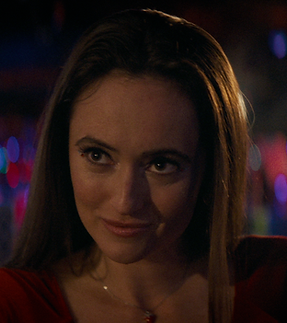

its 2006 and Darren can't drive a stick shift...
His Sisyphean struggle pits him against a hill with a stick-shift car, but really it's Darren vs. the performance of masculinity and the expectations of other men.

Directors Statement
I used to tell this story from when I was 22: I’m broke, trying to meet a girl at 4 a.m., I borrow my friend’s stick-shift, I can’t drive it, and I end up trapped on a hill for hours. It’s a funny story—because that’s how I frame it—but the truth is it was humiliating. Looking at why I’ve told and retold it, I realized I was plastering over shame with comedy. We talk a lot about masculinity (toxic or otherwise), but not about the constant small humiliations men experience trying to live up to an archaic idea of what a man should be. I think this is responsible for so many male driven transgressions in modern life. At its core, that’s what Wish You Were Here! is about: the thousand cuts of death to the male ego, the humiliation we face daily, hourly, trying to be the “man we’re supposed to be”, and never talking about it. So, I wanted to talk about it—lightly. Not a circle of chairs in your living room, but a ride you can laugh through. My hope is the film offers an on-ramp to an uncomfortable conversation about the humiliation at the center of the performance of masculinity. Formally, we built the language around that idea. We set the story in 2006 on a classic “guys’ road trip,” a dominant early-2000s trope. The stick shift stands in for a bygone male power—the American Graffiti/Steve McQueen fantasy—that’s irrelevant now, and yet still polices worth: “Can’t drive a stick? Not a real man.” The car—a Porsche 911—is the one my dad dreamed about my whole life. He built an amazing life, but never got the Porsche. Because the story lives in the early 2000s, Carlos and I limited ourselves to period-true technique: pans and dollies, no drones or gimbals; in-camera whip-pans; lighting and color inspired by a time before digital cameras outpaced celluloid (touchstones: Out of Sight, Synecdoche, New York, My Blueberry Nights). The soundtrack pairs masculine dominance and lonely grief. Rappers Chingy & The Game move from score to source as our characters move in and out of their performance of masculinity, and The Strokes underline the quiet sorrow of facing our failures alone. This is also told through my lens: a white-presenting, half Puerto Rican, half Irish kid from the ’90s who wanted into stories that didn’t always want him. If the film gets us laughing—and then talking—that’s a start.
Filmmakers
Liam Alexander
Writer/Director/Editor

Liam Alexander is an artist, filmmaker, and community leader. His photographic work has been featured in galleries and art fairs across the United States and he has collaborated on film and creative projects with major brands such as Wix.com, The City of New York, Samsung, SAP, and Renaissance Hotels.
Jessica Martinaitis
Producer

Jessica Martinaitis is an Emmy award-winning documentary film and television producer who thrives on crafting meaningful narratives that spotlight critical social issues. Her work has aired on HBO, Hulu &PBS.
Carlos Cardona
Director of Photography

Carlos is an award-winning Colombian American cinematographer who’s recent works include the feature documentary for Paramount+ “Mixtape,” as well as the MAX Original feature documentary “Mostly Harmless”. Carlos wrote and directed, Chiqui, which had it’s world premiere at the 2022 Sundance Film Festival.







